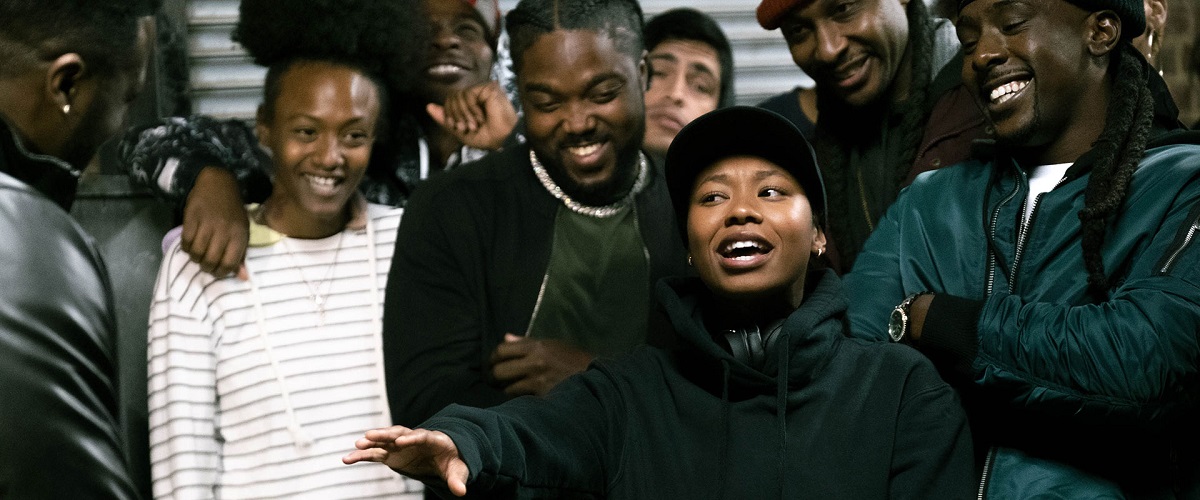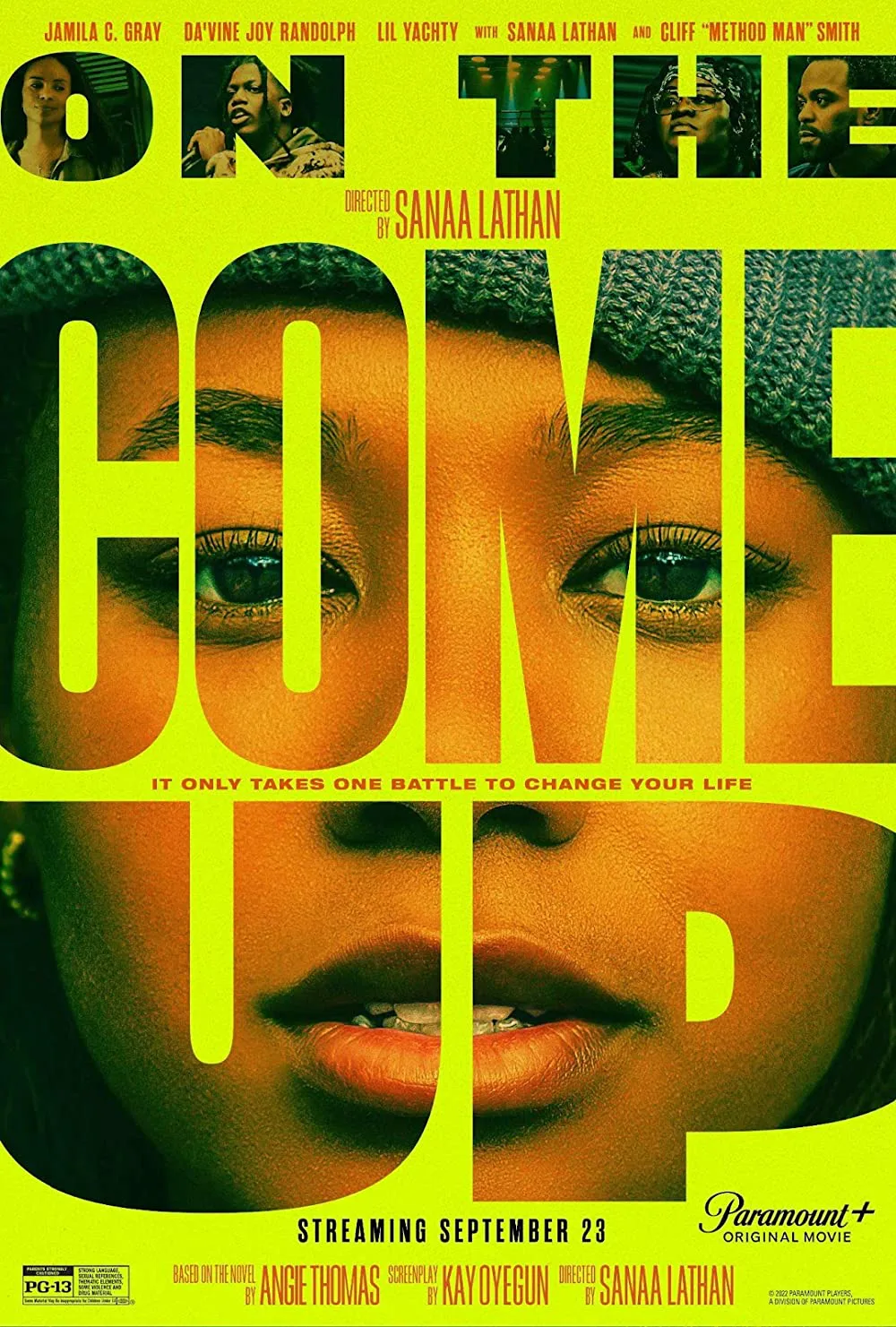I can understand a movie not making logical sense. I can even work through a movie lacking emotional sense too. But I can’t stand a film that feels dishonest or reeks of manipulation. It gives me no pleasure to say this, but actress Sanaa Lathan’s cliched, visually inert directorial debut “On the Come Up” is both dishonest and manipulative.
The film follows 16-year-old Bri (Jamila Gray), living in the fictional inner city of Garden Heights as she pursues her dreams of becoming a famous rapper. For Bri, such lofty goals aren’t beyond the realm of possibility. Rapping is in her blood, and her legendary MC father Lawless was a local sensation with the kind of talent to break through. That is, until he was fatally shot. Now Bri, living with her mother Jay (Lathan), a recovering addict, spends her nights visiting rap battles with her Aunt Pooh (a powerhouse Da’Vine Joy Randolph) in the hopes of being discovered by a record company so she might provide for her family.
Adapted from The Hate U Give author Angie Thomas’ same-titled novel, “On the Come Up” unoriginally hits the beats of other rap battle movies like “8 Mile” and “Hustle & Flow,” but without either of those films’ lived-in feel. Everything in Lathan’s aesthetic vision looks and sounds artificial. The neighborhood of Garden Heights, though often given shoutouts, is rarely experienced and seen; Lathan and her cinematographer Eric Branco (“The Forty-Year-Old Version,” “Clemency”) rarely opt for an establishing shot. Instead, scenes begin with cars or buses driving into a static shot, leaving us confined within the boundaries of the lens rather than exploring what makes this neighborhood alive.
Lathan also opts to use Bri’s internal monologue, whereby she rhymes and counts out syllables, as the film’s narration for reasons that aren’t wholly clear. The voiceover adds little grounding to the character—apart from vocalizing her craft—and her internal lines are so basic, they might as well have been lifted from a Dr. Seuss book.
Despite her immense talent, Bri’s ascent toward stardom isn’t assured. At her white high school, which is supposedly striving for greater diversity, a security guard mistakes her for a drug dealer and body slams her to the ground. With Bri’s mother now laid off, their family struggles to make ends meet. Her first entry to the rap battle ring saw her running away once a rapper started clowning her deceased father. But when she finally wins a battle against the son of her father’s former manager and a successful music kingmaker, Supreme (Cliff “Method Man” Smith), her hotheaded aunt spoils her progress by threatening a rival gang with a gun in the rap battle’s parking lot. Bri’s precarious situation forces her to leave her Aunt Pooh’s protection for the riches promised by Supreme.
While “On the Come Up” wants to be about a girl falling into the pernicious clutches of the music business, even that feels hollow, especially when Bri records a hardcore diss track aimed at her local gang. Her friends Malik (the charming Michael Cooper Jr.) and Sonny (the catty Miles Gutierrez-Riley) see her as a sellout trying to get rich off a lifestyle she doesn’t rep. Bri sees no problem with playing the part if it’ll get her paid, mostly because she doesn’t see the dangerous consequences lurking within her actions.
Bri’s naïveté is the least believable portion of “On the Come Up”; It stretches and distorts reality, and it’s emotionally manipulative. I grew up on the West Side of Chicago. By the age of ten, we knew what piece of the city we called home—both its beauty and its obvious risks. How are we supposed to believe that a 16-year-old girl like Bri, who lost her father to gun violence, isn’t aware of the ramifications of her actions? How is she so blinded to the realities of Garden Heights? “On the Come Up” would rather trade truthfulness for an uplifting Black film about Black people overcoming hardships aimed at white audiences.
It’s a dated tactic. But that unfortunately makes sense in a movie that references Pandora as a viable streaming app, Soundcloud as a platform used by music managers, and whose entire commentary about institutional violence centers around Trayvon Martin, who while important, is one of many. No attempt is made to update or expand these references in order to make this film speak to now. Instead, an awkward queer love story becomes rushed.
“On the Come Up” takes the standard path and subsequent turns you expect in a feel-good story, with all of the extraneous subplots inherent in these movies. We even get a final rap battle whose outcome tramples over the pain and trauma separating mother from daughter and friend from friend. Lathan’s film is only a pale imitation of what came before it. But while “On the Come Up” is a major miss, here’s hoping that Lathan returns with a bigger and better directorial effort next time out.
This review was filed from the Toronto International Film Festival on September 10th. “On the Come Up” opens in theaters and premieres on Paramount+ on September 23rd.




















